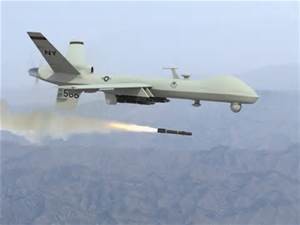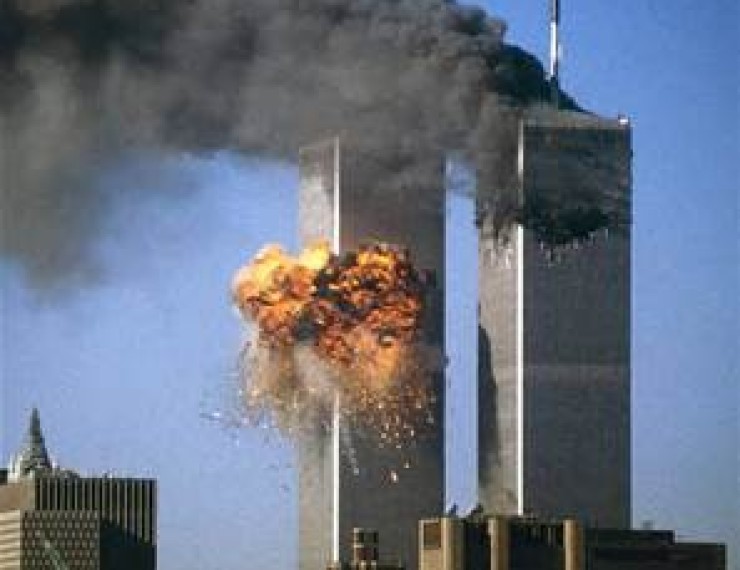Today marks the 14th anniversary of al Qaeda’s 9/11 attack on the U.S. that took out New York City’s twin-tower World Trade Center, a section of the Pentagon, four airliners, and the lives of almost 3,000 innocent people. While the U.S. had been battling a variety of Muslim extremists from different groups since at least the 1970s, 9/11 marked the beginning of the U.S.-proclaimed “Global War on Terror,” which is essentially a war against all Islamic terrorist groups and any countries that may support them.
By at least one measures the war can be termed a success. Most of al Qaeda’s top leadership has been killed or captured, its principal bases of operations and safe havens in  Afghanistan were disrupted, and its Afghani Taliban government supporters ousted from power. Perhaps the most satisfying aspect of the war thus far was the May 2, 2011 raid that resulted in the death of al Qaeda founder and spiritual leader Osama bin Laden–may peace not be upon him.
Afghanistan were disrupted, and its Afghani Taliban government supporters ousted from power. Perhaps the most satisfying aspect of the war thus far was the May 2, 2011 raid that resulted in the death of al Qaeda founder and spiritual leader Osama bin Laden–may peace not be upon him.
Unfortunately, by other measures the war is failing…and badly, according to many analysts. Perhaps that’s why the U.S. government has officially renamed the “Global War on Terror” as the “Overseas Contingency Operation.” Leave it to the Pentagon to come up with a good euphemism to shade the truth.
Only one of the five objectives defined by former President George W. Bush upon declaring the Global War on Terror can be said to be moderately attained, that being the defence of U.S. citizens and interests at home and abroad. Unfortunately that success could be rendered a failure at any time due to an obvious and significant global expansion of the ranks of Islamic terrorists.
While objectives one and two of identifying, locating and demolishing terrorists along with their organizations have resulted in the death and/or capture of key terrorists, there seems to be no lack of new terrorists willing to take their places, and the organizations are far from being demolished. In fact, if anything, attacking al Qaeda and its affiliates has been like cutting the head off a hydra, with each decapitation leading to the growth of two new heads.
like cutting the head off a hydra, with each decapitation leading to the growth of two new heads.
Today there are at least three dozen Islamic terrorist groups hostile to the U.S. and its allies, and one al Qaeda offshoot–Islamic State of Iraq and the Levant (commonly referred to as ISIS, ISIL, IS and Daesh)–has established the equivalent of a state and controls significant land and populations in both Iraq and Syria, and is building up forces in at least 10 other countries. In 2001, al Qaeda was essentially comprised of 2,000 or so terrorists hiding out in Afghanistan under the protection of the Taliban government. In contrast, ISIS today is comprised of an army perhaps more than 100,000 strong that has proven adept at battle and successfully won most of its battles against Iraqi and Syrian troops. It is an army that can fight conventional battles, and one that also excels at using terrorist tactics. Little doubt that this army would love to turn its guns and terrorist tactics on Americans and our allies.
Objectives three–denying sponsorship, support and sanctuary to terrorists–and four–Diminish the underlying conditions that terrorists seek to exploit–are also failures. There seems to be no lack of sponsorship and support for the terrorist groups, and they are enjoying sanctuary in at least 14 countries. And the number of underlying conditions, such as weak ineffectual governments, has significantly increased since 2001.
Now let’s examine al Qaeda’s stated objectives in the war it started. According to al Qaeda’s “Strategy to the Year 2020,” purportedly written by still-at-large, high-ranking al Qaeda member Saif al-Adel, there are five stages of Jihad needed to rid the world’s Islamic community from all forms of [western] oppression:
- Provoke the U.S. and the West into invading a Muslim country by staging a massive attack or string of attacks on U.S. soil. Check!
- Incite local resistance to occupying forces. Check!
- Expand the conflict to neighbouring countries and force the U.S. and its allies into a long war of attrition. Check, and proving to be highly successful.
- Convert al Qaeda into an ideology and set of operating principles that can be franchised out to other countries and groups, who can then launch further attacks on the U.S. and its allies. Big check, with ISIS thus far proving to be the most successful franchisee. It would seem that it’s only a matter of when, not if, ISIS will successfully launch a major terrorist attack on U.S. and/or European soil.
- By 2020 all of the above should lead to the U.S. economy collapsing from the strain of so many engagements. This collapse will lead to a worldwide economic collapse and subsequent global political instability which in turn will signify the start of global Jihad that will successfully overwhelm the U.S. and the rest of the world and allow for the establishment of a global caliphate. We certainly don’t want to see a “check” on this one.
OK, so what is it going to take to turn this failure of an “Overseas Contingency Operation” into a success? Well, for starters we’d recommend getting rid of the euphemism and calling it what it is plain and simple: War! Other than that, the only thing we can think of is to consider the last war America actually won–World War II–and use that as a template of sorts for how to win a war.
If you’ve got any bright ideas then please “hash them out,” as 2020 is coming on fast and our politicians and military leaders can’t seem to see beyond the next drone strike.
our politicians and military leaders can’t seem to see beyond the next drone strike.
Postscript: Following the drafting of the above blog, ABC News released a news story about an audio message current al Qaeda leader Ayman al-Zawahiri broadcast to ISIS as a declaration of war. The audio message accuses the group of sedition and states that ISIS leader Abu Bakr al-Baghdadi is not the leader of all Muslims and current Jihad. For the record it should be noted that while ISIS is an offshoot of al Qaeda, it formerly announced its separation from al Qaeda two years ago, though it maintains, for the most part, similar beliefs in the waging of global Jihad. The good news for the U.S. and its allies is that ISIS spends as much time fighting its nominal allies for dominance over all Islamic militants as it does waging Jihad. Thus an enemy divided among itself is easier to combat than one united. May this dissension between the Islamic militants continue.
–M.J. Moye





